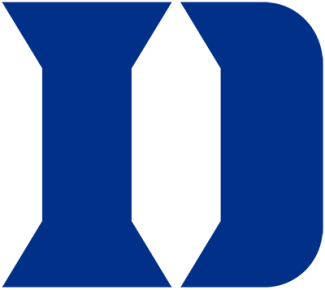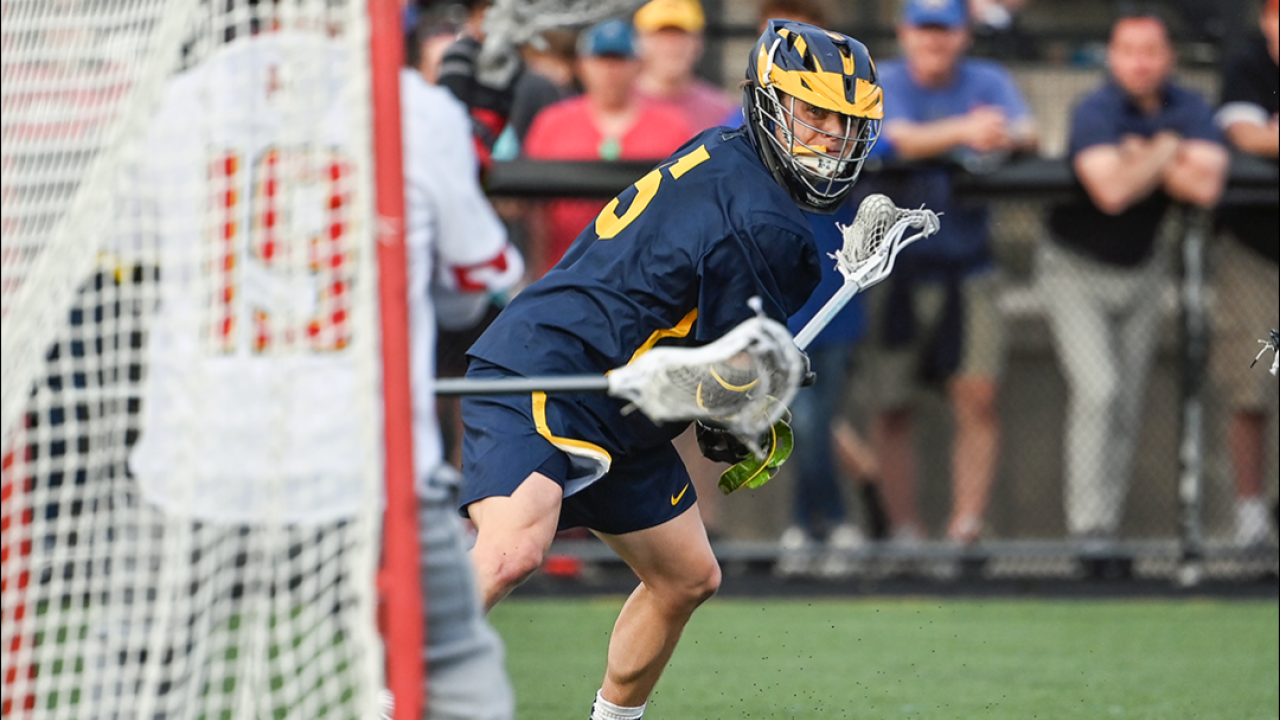IN HIS FIRST SEASON at Michigan in 2018, Conry, who has had defensive coordinator Jim Rogalski aboard for all six years, led the Wolverines to another 8-6 finish. That year, U-M Lacrosse Stadium also opened, with its adjoining Sport Performance Center, a 20,000-square-foot state-of-the-art training facility.
Two notable wins occurred in Conry’s rookie season — a 13-12 victory over fourth-ranked Notre Dame in South Bend (the first over a top-five opponent) and a 10-9 overtime victory at Penn State to close out the season. That was Conry’s first Big Ten victory. Conry toughened up the non-conference schedule in 2019. Michigan finished 4-9, 1-4 in league play.
The COVID-19 pandemic did the program few developmental favors in 2020 and 2021, when the Wolverines went a combined 5-12 over two abbreviated seasons. But key recruits, such as Boehm, Westfeldt and attackman Josh Zawada, had landed in Ann Arbor during the pandemic.
More adversity awaited the Wolverines, who got out to a 7-0 start against non-conference opponents in 2022, only to fail to win another game and finish 7-8. The 0-5 Big Ten finish included a pair of one-goal losses, one of them an overtime defeat at Penn State.
“Teams were probably looking at us like an automatic win, and that was tough. But when you dive into it, we were really competitive in a bunch of those losses,” senior defenseman Ryan Schriber said.
Zawada, who became the Wolverines’ all-time leader with his 103rd career goal in a win over Delaware on March 4, wound up his junior season eighth in the nation (and third in the Big Ten) by averaging 5.13 points per game.
Zawada and every other starter from 2022 returned to Ann Arbor last fall.
“With pretty much our entire team coming back, we knew we could put a good product out there,” Schriber said. “It really came down to fine-tuning our [individual] games and playing better together.”
“We were a great practice team last year,” Conry said. “It’s kind of crazy that it didn’t carry over into more wins.”
The Wolverines fixes that in 2023. After going 5-35 against Big Ten opponents before this season, Michigan stumbled to a 1-3 start in conference play. They beat Ohio State to get the fourth seed.
Before they beat Ohio State again to advance to the semifinals in Baltimore, they got sage advice from former Michigan men’s basketball legendary coach John Beilein, who told the team in a Zoom call it was poised to make a run because, “You’ve had the right mix of success and failure.”
And the Wolverines earned a trip to Baltimore and made history.
“I’ve had to change and develop and get better every year, just like this team,” Conry said. “But this is about the guys who slug it out on the field. They are the ones who had the tough years and believed this could happen and stuck it out. And now they’re champions. Sometimes it takes a while, but we find our stride.”



























































